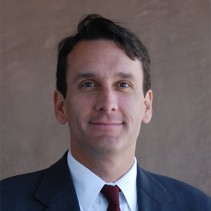Bill Tomlinson

Professor of Informatics and Education at the University of California, Irvine, and researcher in the California Institute for Telecommunications and Information Technology
Bill Tomlinson is a Professor of Informatics and Education at the University of California, Irvine, and a researcher in the California Institute for Telecommunications and Information Technology. He studies the fields of ICT for sustainability, human-computer interaction, and computer-supported learning. His book Greening through IT (MIT Press, 2010) examines the ways in which information technology can help people think and act on the broad scales of time, space, and complexity necessary for us to address the world's current environmental issues. In addition, he has authored more than 100 publications across a range of journals, conferences, and other venues in computing, the learning sciences, sustainability, design, and the law. His work has been reviewed by the Wall Street Journal, the Washington Post, the LA Times, Wired.com, Scientific American Frontiers, CNN, and the BBC. In 2007, he received an NSF CAREER award, and in 2008 he was selected as a Sloan Research Fellow. From 2014-2017, he served on the EPA's Board of Scientific Counselors, Sustainable and Healthy Communities subcommittee. He holds an A.B. in Biology from Harvard College, an M.F.A. in Experimental Animation from CalArts, and S.M. and Ph.D. degrees in Media Arts & Sciences from MIT.
Talk: Designing ICT in the Abundant Present for a Future of Scarcity
This talk presents Bill Tomlinson's research trajectory through sustainable ICT, collapse informatics, and computing within limits. Human communities have access to vast resources, at levels unparalleled in history. However, it is possible that future civilizations will need to serve their needs with fewer resources, either through intentional efforts to shrink humanity's footprint, or through involuntary experience of scarcity. Tomlinson's work explores the juncture of ICT and sustainability in a range of fields including agriculture, law, finance, and education, in particular seeking to build systems in the abundant present for use in a future characterized by dramatically lower resource use.
